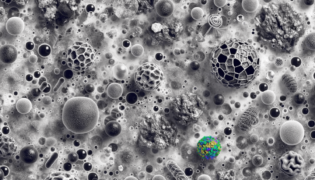No, necklaces do not cause skin tags. Skin tags occur due to friction, genetics, or hormonal fluctuations and are unrelated to wearing necklaces.
Causes of Skin Tags
Skin tags, also known as acrochordons, are benign growths that typically develop in areas with creases and folds, such as the neck and armpits. Factors that contribute to their development include:
- Friction from skin rubbing against skin
- Genetics (some individuals are more prone to skin tags than others)
- Hormonal fluctuations, often related to pregnancy or obesity
Skin Tags Remover Techniques
There are several skin tags remover methods that can be both safe and effective in eliminating them:
- Cryotherapy, which involves freezing the skin tag off using liquid nitrogen
- Electrocautery, which uses heat to remove the skin tag
- Surgical removal, where a medical professional will use a scalpel to excise the skin tag
- Ligation, which involves cutting off the blood supply to the skin tag by tying a thread or suture around its base
Skincare Logix’s Take on Necklaces and Skin Tags
At Skincare Logix, a blog about skincare, we understand the importance of debunking misconceptions related to skin tags. Wearing necklaces does not cause skin tags, but friction could potentially worsen existing ones. Choose necklaces that fit comfortably, and pay attention to any irritation or discomfort in the area.
Understanding Skin Tags
Skin tags are soft, noncancerous growths that appear on the surface of the skin. They are typically the same color as the surrounding skin or slightly darker and can vary in size. Skin tags are harmless, and though they may become irritated if rubbed or caught on clothing, they pose no health risk.
Preventing Skin Tag Formation
While necklaces don’t cause skin tags, it’s important to consider ways to prevent them from forming in the first place. Skincare Logix, a blog about skincare, recommends focusing on the factors in your control, such as maintaining a healthy weight, minimizing skin friction, and keeping the skin clean and dry. Additionally, if you’re genetically predisposed to develop skin tags, regular skin checks will help you monitor any changes.
Managing Skin Tags at Home
Some people may be tempted to remove skin tags themselves; however, this might lead to bleeding, scarring, or infection. It’s essential to speak with a medical professional about your options before attempting any at-home skin tags remover techniques. Also, it’s crucial not to use any skin tag removal products without consulting a medical professional, as they may cause skin irritation or damage.
When to See a Dermatologist
If you suspect that a growth on your skin is a skin tag but are unsure, it’s best to consult a dermatologist. They can assess the growth to determine whether it’s a skin tag or another type of skin condition that requires treatment. Additionally, a dermatologist can recommend the best course of action if you wish to remove the skin tag safely and effectively.
Skincare Logix’s Advice on Choosing Necklaces
At Skincare Logix, we believe that understanding the potential impact of necklaces on skin tags is vital for making informed choices. Although necklaces don’t cause skin tags, selecting jewelry that fits comfortably, is made of hypoallergenic materials, and does not contain any sharp or abrasive features will ensure that your necklace contributes positively to your skin’s health.<
Frequently Asked Questions
After reading our blog post on necklaces and skin tags, you may have additional questions. To help you better understand these harmless growths and their relationship with necklaces, we’ve compiled a list of frequently asked questions and their answers in NLP style.
Can I wear necklaces if I have skin tags on my neck?
Yes, you can still wear necklaces if you have skin tags on your neck. Ensure that the necklace fits comfortably and does not cause any irritation or discomfort around the skin tag.
Do certain materials in necklaces contribute to skin tag formation?
No, the materials in necklaces do not cause skin tags. However, it’s essential to choose necklaces made from hypoallergenic materials to prevent any irritation or allergic reactions, especially if you have sensitive skin.
Can skin tags turn into cancerous growths?
Skin tags are benign and typically do not develop into cancerous growths. However, if you notice any changes in the appearance or texture of a skin tag, consult a dermatologist for evaluation.
How long do skin tags usually last on the skin if left untreated?
Skin tags do not disappear on their own and will likely remain on the skin unless removed by a dermatologist or medical professional. They are harmless and may be removed for cosmetic reasons or if they cause discomfort.
Are there any effective over-the-counter skin tags remover products?
While there are over-the-counter skin tags removal products available, their efficacy varies, and they may not be suitable for all skin types. It’s essential to consult a dermatologist before using these products to avoid potential complications or skin irritations.




















